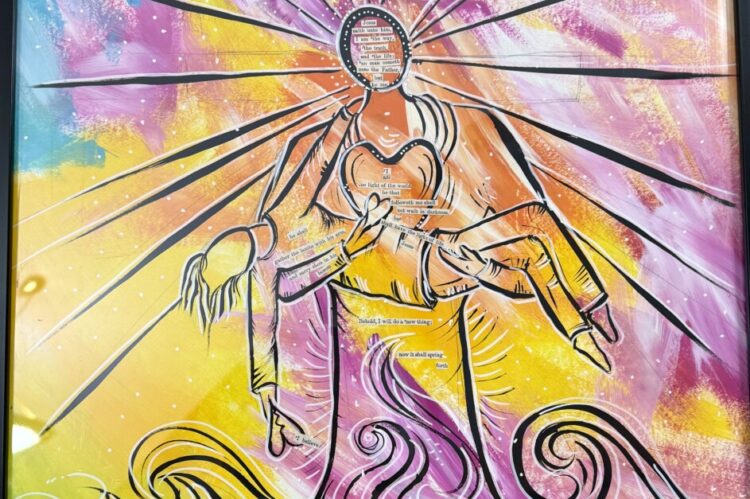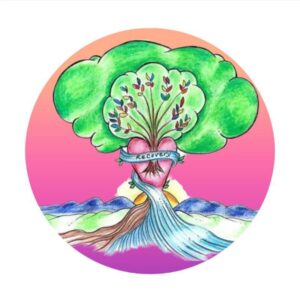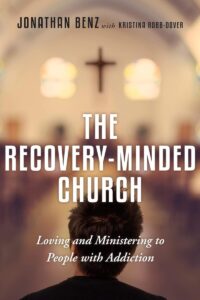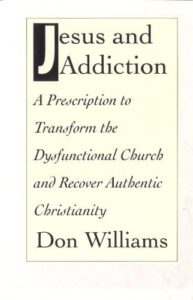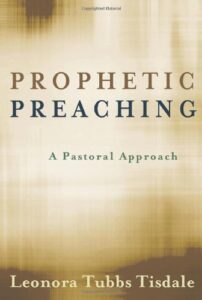Everyone who saw Kevin Harrod always greeted him the same way: “I can’t believe you’re still alive”. The surprise of his friends was understandable. Throughout his twenty years of addiction to alcohol and opioid addiction, Kevin tried and failed every rehabilitation program he could find. “In 2021, an average of 7 Virginians died of a drug overdose every day, a twenty-nine percent increase from 2020.”[1] Kevin credits a faith-based recovery program with being the turning point that kept him from becoming just another statistic.
I serve as pastor of a growing United Methodist Church in Hillsville, Virginia, and no one has to quote overdose statistics to the people of First United Methodist Church. They have all been impacted in some way. They all could call out the names of people they knew who had died from an overdose, and for several families, the name they would call would be one from their family. Everyone in the church wanted do something to tackle the crisis; no one really knew where to begin.
As pastor, I got to know Kevin well and we recognized that his vision was shared by First UMC. On January 3rd, 2023, Kevin and his two co-leaders launched Recovery United as a faith-based recovery program, housed at First UMC. They began with six in attendance. That number would double in two weeks, and double again, until dozens of faces, new and returning, would find Recovery United to be a safe haven.
I serve a congregation for whom living out their faith is important. The question became: How can the congregation of First UMC experience transformation through relationship with the Recovery Community?
It was in the proclamation of the Word that God began to spark imaginations and birth new possibilities. In the 19th Chapter of Luke’s Gospel, we see Jesus change the community for the better through the most unlikely of people – Zacchaeus, the hated tax collector. And how did Jesus do it? Did He heal? Perform a miracle? Give a sermon, parable, or teaching of any kind? Short answer: None of the above. What Jesus did was so simple, yet so profound. Jesus just showed up.
Before long, I explored what “Just Show Up” would look like as innovation. I interviewed six people in the Recovery Community and several leaders in the church, exploring areas of need with an emphasis on where meaningful relationships could begin to grow. I also created a survey for thirty-six people in the Recovery Community. The interviews and survey contained questions focused on four quadrants:
- Presence
- Non-Judgmental Approach
- Empathy
- Compassion
Survey findings helped the church leaders understand where best they could serve and begin to build relationships. Some of the most helpful findings included times when all participant agreed that is was extremely important (rated a 5) or important (rated a 4) for church members to:
- Make a real effort to put themselves in my shoes.
- Be willing not to give advice – just listen.
- Ask me what my needs are.
- Cook a meal for me.
- Pray for me.
I shared these survey results and many more as concrete examples of how the congregation could “just show up” for people in recovery. Kevin and I used the survey to compile a wish list of ways the congregation could make a meaningful difference in the lives of the growing recovery group. In reviewing this list, I was surprised at how many church leaders agreed to provide childcare during meetings, cook meals for the group, and transport group members to appointments, such as doctor’s appointments and probation meetings. Many more agreed to do just what they were asked: Just show up at a Recovery Meeting with no agenda and no advice, instead opening themselves up to doing whatever was needed or else be content to nothing more than be present.
Over time, many relationships were formed between group members and the congregation. Church members looked for more ways to serve their new friends. They threw birthday parties and baby showers for people in recovery. Several in recovery also found a church home at First UMC. In the last year, the growing consensus has been that God has taken two groups of people and merged them into one beautiful new community.
Together, Recovery United and the congregation of First UMC have much to celebrate. Still yet, there is so much more work to do. Several leaders in the church have combined funds to begin the approval process to start a non-profit to be called Grace, Grit, And Gratitude, a place that is meant to serve as one central location for alcohol and drug counseling, recovery life skills (including budgeting and interview skills), as well as serve as the first stop for Carroll County residents coming out of drug court or drug-related rehabilitation facilities. Kevin Harrod obtained a Peer Recovery Specialist certification and has already started networking with drug court and local rehabilitation facilities. He was also recently hired as First United Methodist Church’s first ever Recovery Pastor.
People still ask me, “What does ‘Just Show Up’ mean?” The answer has never changed. It means exactly what it sounds like. Listen. Care. Sometimes you’ll be asked to give advice. Give it. Sometimes you’ll be asked to pray. Pray. Sometimes, people won’t want you to give any advice or pray or do anything….so don’t. Live out your faith by being present. If you want to save lives, if you want to change the world, just show up for one person at a time.
NEXT STEPS:
YOU TOO can help form a recovery group in your church and community.
- Identify a person or people who have been in recovery for a significant period of time (two years of more).
- Equip these individuals with tools to be successful. Point them to the credentialing process as a Peer Recovery Specialist. Credentialing through the Peer Support Program is available in all states and considered Best Practice by Substance Abuse and Mental Health Services (SAMHSA).
- Get your congregation on board. Hold listening sessions with your congregation first, and then invite potential group leaders to talk about recovery ideas. Discuss ways your congregation can provide meaningful support to those in addiction.
- Launch the recovery group.
- Learn. Grow. Improve. Keep having regular meetings and evaluate what’s working, what’s not, and how relationships can continue to grow. Keep listening. Keep improving. Stay engaged in the work of saving lives.
THREE RESOURCES NOT TO MISS!
The Recovery-Minded Church by Jonathan Benz with Kristina Robb Dover is exceptional in that it guides pastors and leaders in ways to open up the dialogue with their congregations on the importance of serving the Recovery Community. It also gives practical guidance on what a true partnership between the local congregation and the Recovery Community looks like. Stop what you’re doing and put this book on your shelf. Better yet – read it right away!
Jesus and Addiction: A Prescription to Transform the Dysfunctional Church and Recover Authentic Christianity by Don Williams is another great resource for congregations seeking ways to live out their faith through serving those in recovery. Williams doesn’t pull any punches: The Church needs to be transformed just as much as those in recovery. Truly, there is no “us” and there is no “them”, and the light Williams shines on that could not be any brighter. Don’t be surprised when you make so many highlights in this book that you eventually conclude it’s pointless – it’s ALL important.
Finally, one more for the those who preach the Word. Anyone who has ever said prophetic preaching is easy has never done it. Whether you’re preaching on the recovery community or anything else that presents more than the usual number of challenges, Leonora Tubbs Tisdale’s book, Prophetic Preaching: A Pastoral Approach, will be your Go To book for both inspiration and step by step guidance. You’re welcome!
